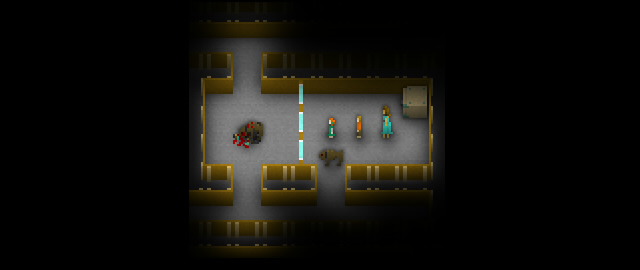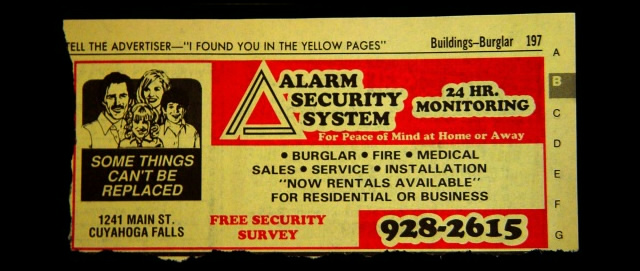Interview mit Jason Rohrer: The Castle Doctrine und Spieledesign

„We’re all in the same sinking boat here, and I can’t really blame you for what you’re doing.“
(Quelle: Jason Rohrer,
Treatment of otherness in The Castle Doctrine, 26.07.2013)
Viel zu wenig Beachtung schenkten wir ihm in den letzten Monaten und Jahren: Die Rede ist vom Spielemacher Jason Rohrer, der unter anderem Glanzleistungen wie beispielsweise Passage, Sleep Is Death oder auch Inside a Star-filled Sky schuf. Mit seinem neuen, zehnten Titel — das sich derzeitig in der 15. Alpha-Version befindende Selbstverteidigungs-Plünderei-MMO The Castle Doctrine — feiert er quasi seine Rosenhochzeit mit der Spieleprogrammierung. Dieser besondere Anlass schrie geradezu nach einem Interview.
Schließlich geht es in The Castle Doctrine mehr als nur darum, ein unüberwindbares Sicherheitssystem für das Anwesen der Pixelfamilie zu kreieren, während man in die Häuser anderer einbricht. Rohrer will mehr bewirken als nur bloße Unterhaltung — der Spielspaß selbst scheint bei Rohrer-Spielen oftmals hinter der Aussage zu stehen. Ein Grund mehr, ihn nach seinen Ansichten zu befragen:
Dear Jason, thank you so much for agreeing to participate in this interview. Let’s start with the mother of all questions: Why do you make games?
 Jason Rohrer I make computer games because they are a relatively new medium with a huge amount of territory left to explore. It’s relatively easy to make a contribution here, and to be doing work that is worth doing, compared to film or writing or music, where much more of the important territory has already been explored.
Jason Rohrer I make computer games because they are a relatively new medium with a huge amount of territory left to explore. It’s relatively easy to make a contribution here, and to be doing work that is worth doing, compared to film or writing or music, where much more of the important territory has already been explored.
True, and you aren’t only doing practical work, but you also do theory. 2010 you published your New Gamist Manifesto. There’s one point I really love: “Playing a game is more like learning a new language.” Do you see language as a grammar or a new aesthetic or something else?
Jason The best example of this comes from two-player games like Chess, which can be viewed as a kind of communication between the two players involved. Chess is an abstract interface between two minds. As you learn the rules and patterns of a new game, and learn to communicate through that game with other players, it really is like picking up the rules and patterns of communication for a new language. “Do you play Chess?” is a very loaded question, almost as loaded as, “Do you speak French?” In fact, I’d now go so far as to say that learning a new game is like learning a new language and culture.

Speaking of milleniums-old game concepts… Sometimes your games remind me of Tic Tac Toe: “The only winning move is not to play.“ However, there’s more. You manage to initiate thinking processes. I ask myself questions about the games, their motifs. Is there a special one in The Castle Doctrine?
Jason The Castle Doctrine is about the question of self and family defense. That question is a philosophically thorny one that has puzzled people for ages. There are a few people who would say that hurting anyone at all, even to protect yourself from being hurt, is always wrong — true pacifists believe this. But the vast majority of people in a place like the US believe in some form of self defense in at least some cases.
What’s your opinion?
Jason The question becomes thorny when we think about where we should draw the line. Do you have the right to kill someone to stop them from punching you? Probably not. Do you have the right to punch them to stop them from punching you? Maybe. And many people would say you have the right to kill an aggressor to stop them from killing you in at least some circumstances. But what if they aren’t going to kill you, but are simply going to maim you permanently? Where do we draw the line then?

Jason The Castle Doctrine builds a fantastical world around that central, thorny question. It’s a safe space to experiment with these issues. But, unlike most games, it is not free of real consequences, because harmful actions in the game always have a negative impact on another human being who is also playing the game.
Your passion in your own game design fascinates me. Do you see such things in other peoples work? Are there some programers or game studios you’d like to corporate with?
 Jason There are many game designers that I admire, like Jonathan Blow, Phil Fish, Derek Yu, Frank Lantz. However, I also realize that they are each like me in terms of wanting to make things that they conceive themselves and not wanting to work on other people’s stuff. Thus, I can’t imagine we would collaborate well. We each have our own distinct visions.
Jason There are many game designers that I admire, like Jonathan Blow, Phil Fish, Derek Yu, Frank Lantz. However, I also realize that they are each like me in terms of wanting to make things that they conceive themselves and not wanting to work on other people’s stuff. Thus, I can’t imagine we would collaborate well. We each have our own distinct visions.
Well, you’ve got your visions, dreams and wishes — and now we offer you their realization with our fictional blue Superlevel fairy! Tell us: What would Jason Rohrer do with three free wishes right now?
Jason Wish 1: That the fairy would go away and negate my other two wishes.
Fuck. Thank you, Jason!